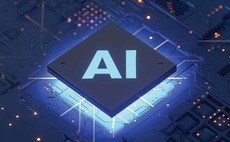New Microsoft CEO to unveil corporate re-organisation when financial results are announced on 22 July
Microsoft's new CEO Satya Nadella has hinted at a re-organisation and job cuts at the software giant in an open memo published overnight. The details will be unveiled when the company announces ...
To continue reading this article...
Join Computing
- Unlimited access to real-time news, analysis and opinion from the technology industry
- Receive important and breaking news in our daily newsletter
- Be the first to hear about our events and awards programmes
- Join live member only interviews with IT leaders at the ‘IT Lounge’; your chance to ask your burning tech questions and have them answered
- Access to the Computing Delta hub providing market intelligence and research
- Receive our members-only newsletter with exclusive opinion pieces from senior IT Leaders





















